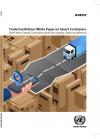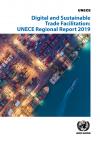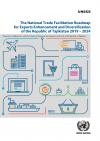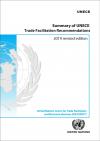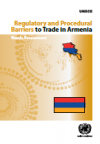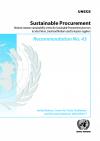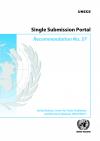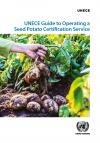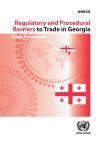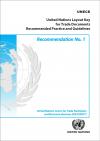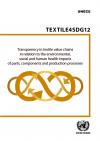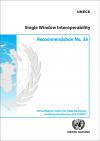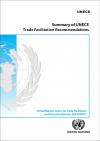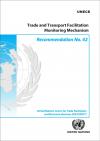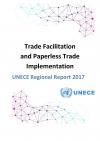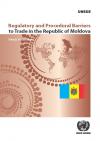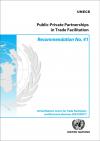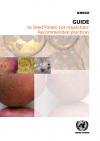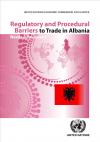Publications
Displaying Results 41 - 60 of 124
- English
Technology is entering into every aspect of the supply chain and providing performant and innovative tools. As many are just starting to talk about the dematerialization of certain documents used in trade and transport, others are investigating how devices can communicate information directly to the rest of the supply chain without human intervention. Smart Containers are taking the digital
- English
It is fair to say that trade facilitation is a key policy priority for most if not all the trading nations. The benefits for implementing trade facilitation provisions such as the ones in the World Trade Organization’s (WTO) Trade Facilitation Agreement are well documented. However, the need for measuring progress of the provisions remain as strong as ever. Since 2015 the United Nations
- English
Trade facilitation is a key factor in national competitiveness and in the economic development of countries. At the same time, the development of a simplified and automated trade environment is a challenging reform programme for any country. It requires strategic vision, leadership, change management, collaboration, and coordination between various stakeholders. It is also a well-known fact
- English
Within the United Nations Economic Commission for Europe (UNECE), the United Nations Centre for Trade Facilitation and Electronic Business (UN/CEFACT) has developed a series of some 30 recommendations and standards that are used worldwide to simplify, standardize and harmonize trade procedures and information flows. Many of these are now international standards of the International
- English
Since 2010, the UNECE has been undertaking demand-driven national studies of regulatory and procedural barriers to trade, with a view to: helping countries achieve greater regional and global economic integration; informing donors as to where assistance might be required; and, supporting policy discussions within the Steering Committee on Trade Capacity and Standards (previously, the
- English
Public procurement alone represents 15-20% of the global GDP, while procurement commitments under the World Trade Organization’s Agreement on Public Procurement (GPA) have been estimated at around EUR 1.3 trillion. This is enormous purchasing power that can drive investment and innovation towards more sustainable production and consumption patterns, to address for instance, challenges linked
- English
Streamlining border crossing and helping traders to access international markets can provide significant stimulus to national economies and directly supports the implementation of UN Sustainable Development Goal (SDG) 17, specifically on promoting a universal, rules-based, open, non-discriminatory and equitable trading system in target 17.10. One of the key smart connectivity solutions a
- English
This guide (ECE(TRADE/434) has been developed to assist Certifying Authorities (CAs) in the operation of their seed potato certification service and to encourage standardisation in the operation of seed potato certification services between CAs. The guide is also intended to assist countries that are not implementing the Standard to establish a seed potato certification system and a CA and
- English
Since 2010, the ECE has been undertaking demand-driven national studies of regulatory and procedural barriers to trade, with a view to: helping countries achieve greater regional and global economic integration; informing donors as to where assistance might be required; and supporting policy discussions within the Steering Committee on Trade Capacity and Standards (previously, the Committee on
- English
Since the introduction in 1973 as the UNECE Recommendation No. 1, the UN Layout Key (UNLK) has provided Governments, organizations and the business community with a basis for a standard and aligned design of documents used in trade and transport. This has led to a major improvement in the standardization of trade documents in many countries throughout the world.Most international organizations
- English
As the second most polluting industry, the textile sector is responsible for a large portion of the world’s CO2 emissions and industrial waste, not to mention the exploitation of “indecent” working conditions. At the same time, the industry has a complex value chain, with production facilities located all over the world, which makes it very hard to gain accurate information about sources and
- English
The Economic Commission for Europe (UNECE) has a long history of offering trade facilitation guidance, especially on the topic of Single Window. Since its emergence in 2004, Recommendation 33 on implementing a Single Window has been widely received as the reference on the subject and is used as the basis for many other organizations’ work as well as the cornerstone of many national
- English
Within the United Nations Economic Commission for Europe (UNECE), the United Nations Centre for Trade Facilitation and Electronic Business (UN/CEFACT) has developed a series of some 30 recommendations and standards that are used worldwide to simplify, standardize and harmonize trade procedures and information flows. Many of these are now international standards of the International
- English
Recommendation 42 on Trade and Transport Facilitation Monitoring Mechanisms (TTFMM) addresses issues related to institutional arrangements and methodology in designing and implementing TTFMM. It is an important contribution to UNECE’s suite of Trade Facilitation recommendations and guidance material.Download the Publication ECE/TRADE/
- English
The Explanatory Brochure on the Standard for Sweet Peppers has been developed to harmonize the interpretation of the Standard, thereby facilitating international as well as national trade. It addresses producers and traders, as well as inspection authorities. It corresponds to the latest edition of the UNECE Standard for Sweet Peppers (FFV-28), which was officially adopted in November 2009. In
- English
Facilitating trade is about streamlining and simplifying international trade, particularly import and export procedures, transit requirements and procedures applied by Customs and other agencies (UNECE-UN/CEFACT). With the rapid increase of international trade, thanks in part to the reduction of tariffs and quotas, it has become evident that for countries to benefit from open global markets it
- English
A small landlocked country, the Republic of Moldova remains one of the poorest countries in South East Europe, with the economy showing continued dependence on low value-added manufacturing and agriculture along with remittances from workers abroad for income generation. The country is yet to reap the benefits of the intensive reform efforts, which have been
- English
Public-Private Partnerships (PPPs) is a possible solution for financing and implementing public projects. These projects allow the public sector to benefit from private sector funding, expertise and capacity while allowing the private sector to partner with the public sector in providing critical public services. There are a number of areas within Trade Facilitation
- English
This Guide refers to the UNECE STANDARD S-1, concerning the marketing and commercial quality control of Seed Potatoes. Knowledge of the relevant requirements is essential for the inspector.
Inspection is the visual examination of plants, tubers, containers, equipment or facilities by an authorized person, to determine compliance with regulations. Confirmation of symptoms can be supported by
- English
An upper-middle income country, Albania is in the process of implementing an all-encompassing reform effort to foster national competitiveness and achieve greater integration into global value chains.Driving these reforms is the imperative for fulfilling the requirements of the European Union (EU) Acquis Communautaire, which gained new life in 2014 when Albania


